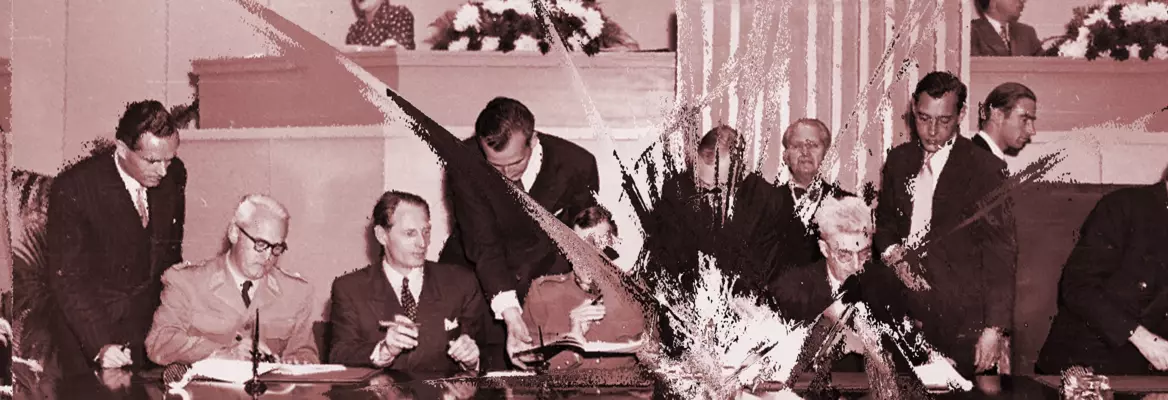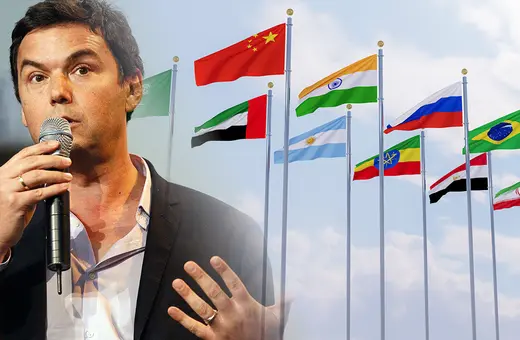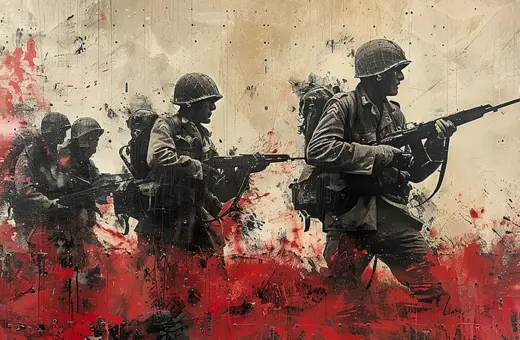Western governments are quick to call out Russia for committing war crimes when it causes civilian casualties in Ukraine, while exculpating Israel when it does the same in Gaza. But focusing only on whether the war itself in each case is legal, while ignoring the way the warfare is conducted, erodes a crucial distinction in international law, argues Hew Strachan.
Russia’s war in Ukraine, and now Israel’s war against Hamas in Gaza, have intensified the already heated debate around the international law governing war. But the ways in which these laws are being cited threaten to distort the crucial distinction between ius ad bellum (the law governing the resort to war) and ius in bello (the law affecting war’s conduct). Because Russia’s war is illegal, some presume that the way in which its armed forces fight is also illegal. That may well be proved by due process, but legally fighting an illegal war doesn’t necessarily imply that the war is being fought in an illegal manner.
On the other front, the Hamas attack on Israel clearly breached both forms of law: it was an act of aggression and it deliberately killed non-combatants with extraordinary and provocative brutality. By rising to the provocation, Israel is relying on the legality of its decision to go to war to justify how it is now fighting that war. But the the right to respond to attack does not legitimise illegal ways of fighting. The charge that it is killing innocent civilians in Gaza, if proven, will be a breach of ius in bello. Western powers, like the United States, Germany and the United Kingdom, who have supported Ukraine and now back Israel, are caught between a rock and a hard place. In Israel’s case they say that some civilian casualties in war are inevitable, especially in densely populated areas, but this is not a mitigation that they have so far allowed to Russia’s armed forces – not least because its resort to war was unjust. If international law is not applied equally to all countries engaged in warfare, whether enemies or allies, it loses its claim to impartiality.
___
Since 2009 both the United States and the United Kingdom have increasingly rationalised their foreign and security policies as a defence of ‘the rules-based international order’, not as support for international law.
___
Since the 9/11 attacks in 2001, international law has exercised a growing influence on the political and strategic aspects of war’s conduct. For some powers at least, international humanitarian law shapes how they use armed force and how they make the case for its employment to international opinion. In the Second World War, warcrimes only reached the courts after the fighting was over. Seen by some as victors’ justice, they focused on senior leaders accused of waging aggressive war in contravention of the 1928 Kellogg-Briand pact rather than on junior figures accused of war crimes committed in the course of the war. Today detailed evidence of war crimes is being collected while the conflict is ongoing and before the war’s outcome is known. Germany, for example, is proposing to prosecute senior Russian officers for crimes against humanity under the principle of ‘universal jurisdiction’.




















Join the conversation